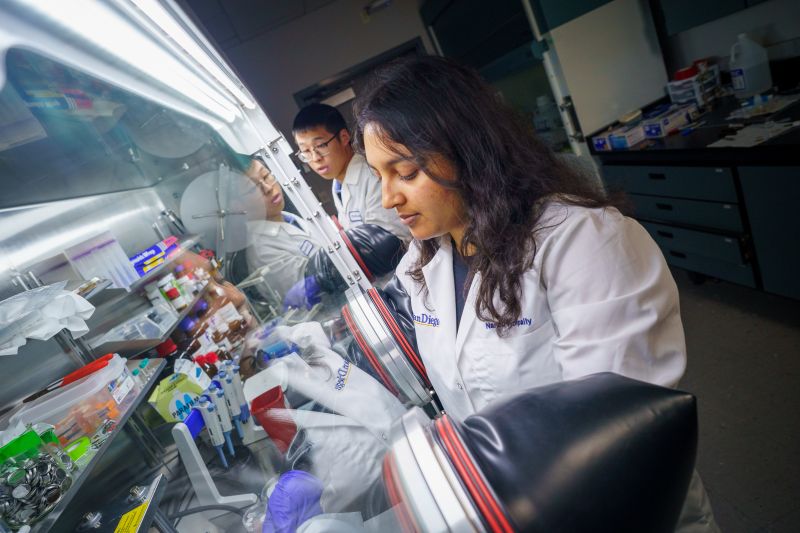Accelerate to Industry (A2i)™ program: Shaping the future of STEM research and its applications at North Carolina State University
Welcome to the forefront of STEM education, where innovation meets opportunity. The U.S. National Science Foundation proudly spotlights the North Carolina State University's Accelerate to Industry (A2i)™ program. This groundbreaking initiative bridges the gap between academic research and industry application, propelling graduate STEM students to lead scientific and technological advancements and opportunities to solve industry challenges.
From academic knowledge to industry innovation
The A2i program at North Carolina State University is a pioneering effort to equip graduate STEM students with the skills, knowledge and industry connections necessary to thrive in today's dynamic job market. By offering a unique blend of academic rigor and practical industry experience, A2i empowers students to translate their research into real-world solutions that address pressing global challenges.
"A2i is more than just a program; it's a transformative journey that prepares our students to be leaders in their fields," says Peter Harries, the visionary leader behind A2i. "We are committed to fostering an environment where innovation and collaboration flourish, driving advancements in science and technology."
Program implementation: Industry immersion and mentorships
The A2i program provides graduate STEM students with a comprehensive, immersive experience. Key components of the program include:
- Industry immersion: An intensive, week-long experience where students interact with industry leaders, participate in workshops and gain firsthand insight into the industry's expectations and challenges.
- Internships and fellowships: Tailored opportunities for students to work directly within industry settings, applying their research skills to real-world projects and building valuable professional networks.
- Professional development: A series of workshops and seminars focused on essential skills such as communication, leadership and entrepreneurship. These sessions enhance students' ability to translate their research into practical applications effectively.
- Mentorship and networking: Access to a robust network of industry professionals and mentors who provide guidance, support and career advice, helping students create a professional journey strategy.
Program outcomes and impact: A leap forward for universities, students and industry
The impact of the A2i program is profound and far-reaching. Since its inception, A2i has successfully prepared countless graduate STEM students for thriving careers in industry, academia, and beyond. Program graduates have secured prestigious positions in leading companies, driving innovation and significant contributions to their fields.
"The A2i program has been instrumental in shaping program participants' careers," describes Harries of A2i program participants. "The soft and research skills and industry immersion knowledge gained through A2i open doors for program graduates to work in industry and make significant contributions in their fields."
Joining the A2i movement
The success of the North Carolina State University's A2i™ program has sparked interest from universities across the nation. Harries encourages other universities and industry organizations to consider adopting the A2i model. By doing so, universities and industry can join in providing graduate STEM students with unparalleled opportunities to bridge the gap between academia and industry, fostering a new generation of STEM leaders and innovators. In addition, more universities and industry participants ensure the program's sustainability beyond the grant funding.
Through its strategic funding of STEM projects, NSF is not just investing in technology; it is investing in humanity's future. By prioritizing ethical considerations, enhancing human-machine collaboration, fortifying cybersecurity and transforming educational paradigms, NSF plays a crucial role in developing a STEM workforce equipped to tackle global challenges with innovation and integrity. For researchers, educators and the public alike, NSF's initiatives offer a source of inspiration and a call to action to participate in the continuously evolving field of STEM.

